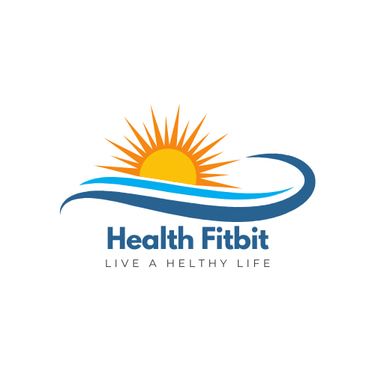Self-Affirmations: Unlock Your Power & Transform Your Life
Discover what self-affirmations are, how they work scientifically, and their benefits for stress, confidence, and resilience. Learn practical tips to start affirming your best self today.
HEALTH & AWARNESS
Tapas Kumar Basu
6/14/20254 min read


In a world filled with constant demands and challenges, maintaining a positive self-view is crucial for well-being and personal growth. Self-affirmations are powerful, present-tense statements that, when consistently practiced, can reshape your mindset and influence your reality.
At its core, self-affirmation theory, developed by social psychologist Claude Steele, posits that individuals are motivated to maintain a positive and integrated sense of self. When this self-integrity is threatened by setbacks or criticism, affirming other important aspects of our self-worth can help buffer these threats. This isn't about ignoring problems; it's about broadening your perspective and reminding yourself of your inherent strengths and values.
For instance, when faced with a difficult task, instead of dwelling on potential failure, you might affirm: "I am capable and resourceful. I approach challenges as opportunities for growth." This deliberate act of self-reassurance helps tap into your inner reserves.
The Science Behind Self-Affirmations
The effectiveness of self-affirmations is supported by significant psychological and neurological mechanisms:
Neuroplasticity and Brain Activation: Our brains are remarkably adaptable. Regularly engaging in self-affirmations strengthens neural pathways associated with positive self-regard and resilience. Research using fMRI has shown that self-affirmations activate key brain regions like the ventromedial prefrontal cortex (vmPFC), involved in self-processing and valuation, and the ventral striatum, linked to reward and pleasure. Consistent practice can train your brain to naturally gravitate towards positive self-talk.
Neurochemical Balance: Affirmations can positively influence your neurochemical balance. They are linked to the release of beneficial neurotransmitters such as dopamine, associated with motivation and pleasure, and serotonin, which promotes feelings of well-being. Concurrently, they can help reduce levels of cortisol, the primary stress hormone, thereby mitigating the physiological impact of stress.
Threat Reduction and Cognitive Reframing: When under threat, individuals often narrow their focus and become defensive. Self-affirmations work by reminding you of your broader identity and core values, thereby decoupling your self-worth from the immediate threat. This allows for a more open, less defensive approach to challenges, fostering a growth mindset where obstacles are perceived as learning opportunities rather than personal failures.
Key Benefits of Self-Affirmations
Consistent practice of self-affirmations can yield numerous benefits across various aspects of your life:
Stress Reduction and Enhanced Coping: Affirmations can significantly reduce both psychological and physiological stress responses, improving your ability to cope with life's pressures.
Improved Self-Esteem and Confidence: Regularly acknowledging your strengths and positive qualities naturally leads to a stronger sense of self-worth and greater confidence in your abilities.
Increased Resilience and Adaptability: Affirmations provide an internal tool to help you bounce back from setbacks, adapt to change, and navigate adversity with greater strength.
Better Health Behaviors: Research suggests a link between self-affirmation and improved health choices, such as increased physical activity and healthier eating habits, likely due to an enhanced sense of self-efficacy.
Enhanced Academic and Professional Performance: By reducing anxiety and promoting a growth mindset, affirmations can lead to improved focus, persistence, and better outcomes in educational and career pursuits.
Recent research continues to affirm these findings. A late 2023 meta-analysis in Educational Psychology Review highlighted the positive impact of self-affirmation interventions on academic performance and well-being in educational settings. Furthermore, a 2025 study exploring self-affirmation in an Indian adult population found that even brief affirmation exercises reduced perceived stress and improved mood, demonstrating the practice's broad applicability.
Practical Steps for Crafting and Using Affirmations
To maximize the impact of self-affirmations, personalize them and integrate them consistently into your daily routine:
Make Them Personal and Meaningful: Your affirmations should resonate deeply with your values and aspirations. Focus on qualities you genuinely wish to embody.
Example: "I am a wellspring of creative ideas and innovative solutions."
Keep Them Positive and Present Tense: Frame your statements as if they are already true. Avoid negative language or future-oriented desires.
Instead of: "I won't be anxious anymore."
Try: "I am calm, confident, and centered."
Be Specific but Flexible: While general affirmations are fine, more specific ones can be more impactful.
Instead of: "I am successful."
Try: "I excel in my work and contribute meaningfully to my team's goals."
Inject Emotion: Say your affirmations with feeling. Connect to the emotion behind the words, visualizing yourself experiencing the truth of the affirmation.
Practice Consistency: Regular practice is key to compounding the benefits.
Morning Routine: Start your day by speaking 3-5 affirmations aloud to set a positive tone.
Trigger-Based Practice: Use a relevant affirmation when you encounter a specific challenge or negative thought.
Writing: Journaling your affirmations can deepen their impact and commitment.
Visual Reminders: Place sticky notes with affirmations in visible locations or use them as digital backgrounds.
Frequently Asked Questions (FAQs)
Q1: Do self-affirmations work for everyone?
A1: While generally effective, their impact can vary. They tend to be most beneficial for those who actively engage with the process. Even with initial skepticism, consistent and gentle practice can yield positive results over time.
Q2: Are self-affirmations merely "fluffy" positive thinking?
A2: No. They are grounded in established psychological theory and supported by neuroscientific evidence. They go beyond superficial positivity by engaging cognitive and emotional processes that foster genuine self-integrity and resilience.
Q3: How long does it take to see results?
A3: Some individuals report immediate mood shifts, while deeper, more lasting changes in mindset and behavior typically require consistent practice over weeks or months. Progress is often gradual, similar to building a physical skill.
Q4: Can self-affirmations be harmful or lead to delusion?
A4: When affirmations are realistic and value-based, they are generally not harmful. However, using them to deny reality or avoid necessary action (e.g., "I am financially abundant" without any effort to improve finances) can be counterproductive. The goal is to cultivate a positive mindset that supports realistic action, not to escape reality.
Q5: What if I don't believe my affirmation at first?
A5: It's common to feel a disconnect initially, especially if the affirmation challenges a deeply ingrained limiting belief. Start with affirmations that feel mildly challenging but not entirely unbelievable. Focus on the intention and the feeling you desire to cultivate. With repetition, your belief will often grow.
Self-affirmations are a powerful yet accessible tool for personal growth and empowerment. By intentionally choosing to reinforce positive truths about yourself, you engage in a transformative process that can enhance your well-being, boost your resilience, and help you unlock your fullest potential.
What self-affirmation will you choose to empower yourself today?
Explore fitness, meditation, and healthy living tips.
© 2025. All rights reserved.
